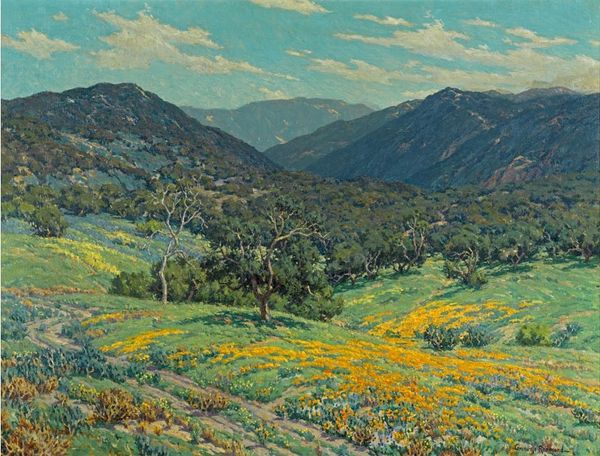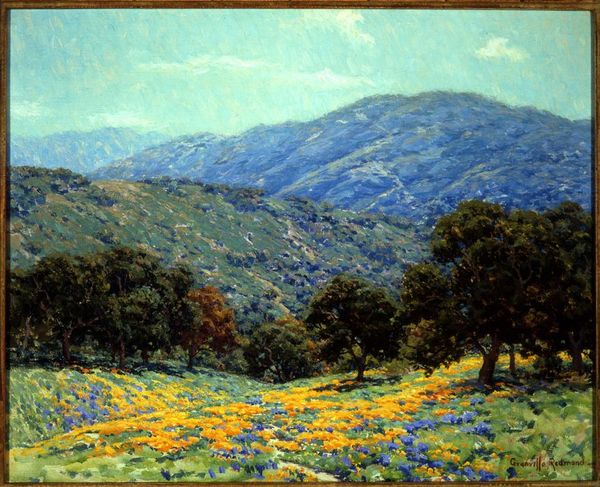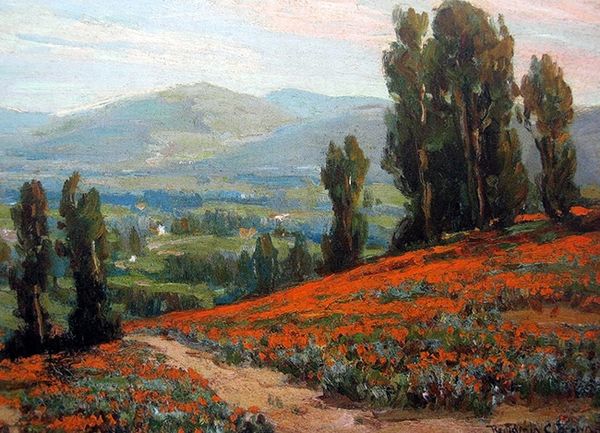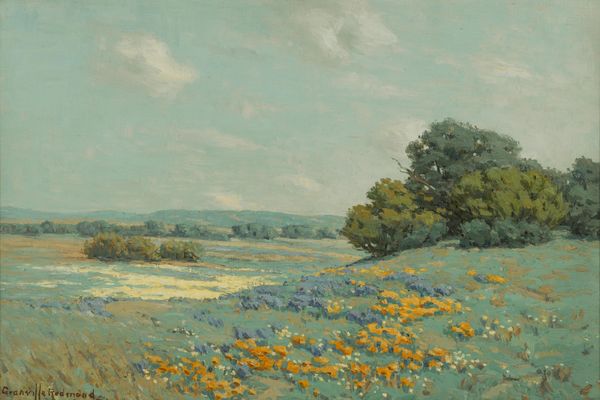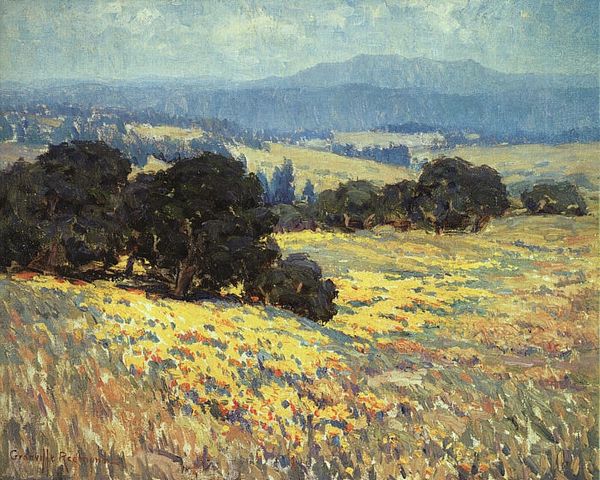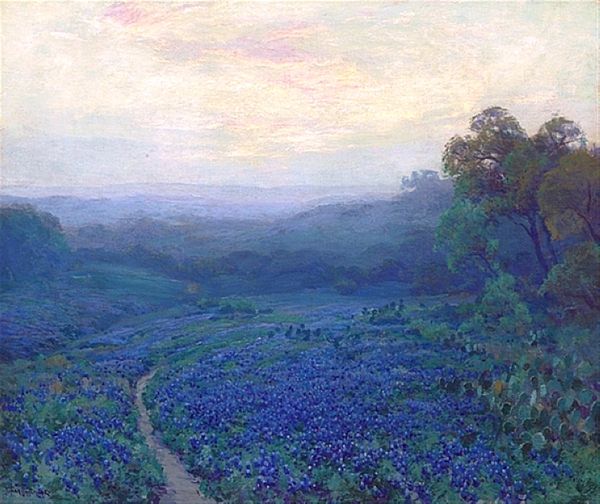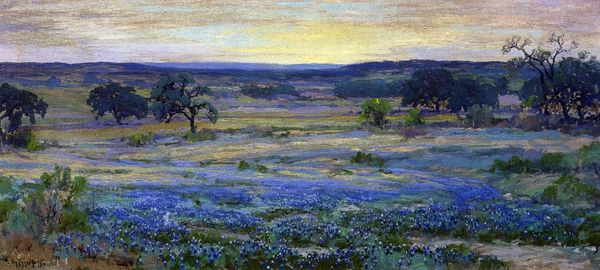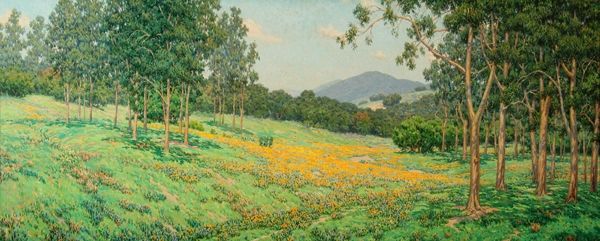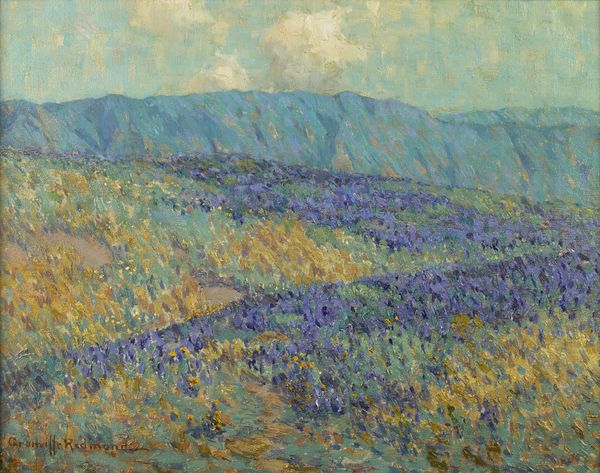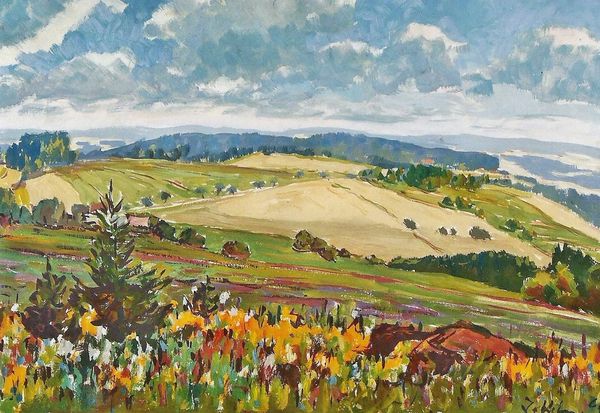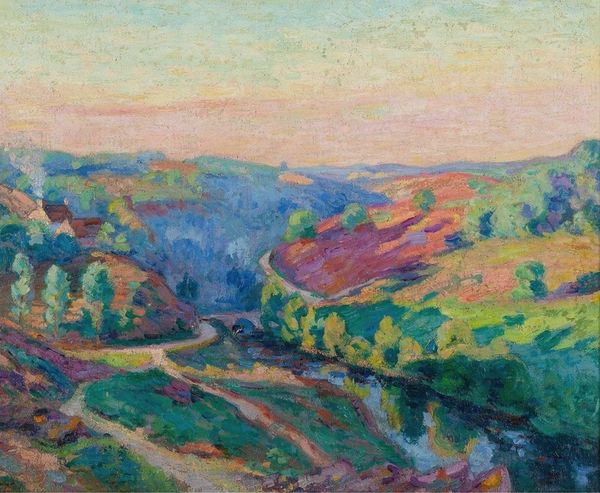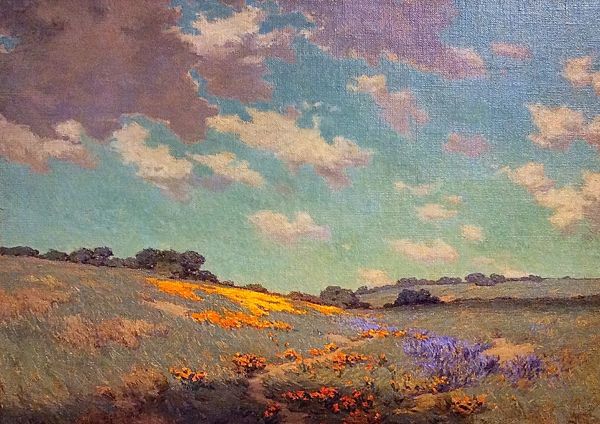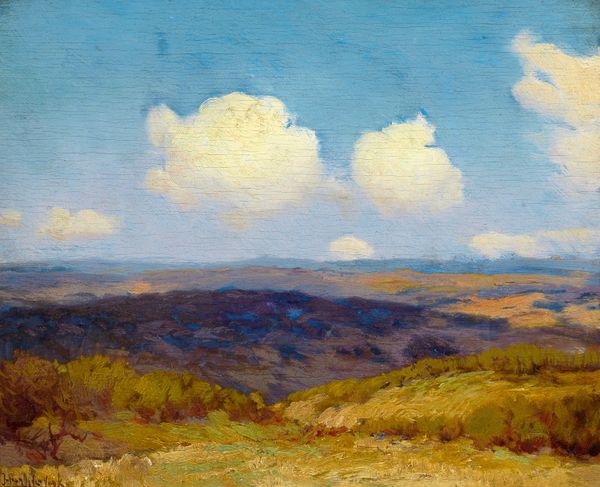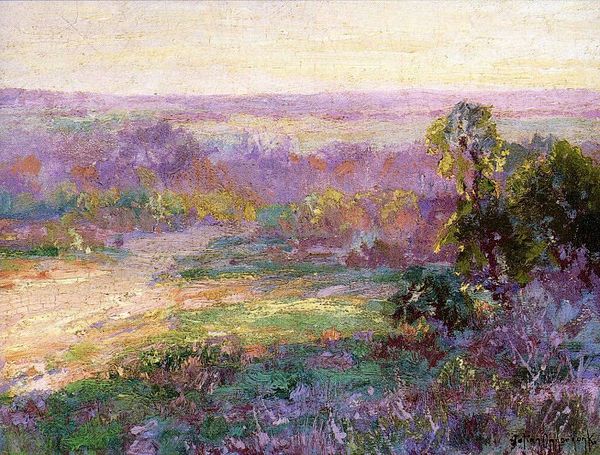
painting, plein-air, oil-paint
#
sky
#
painting
#
impressionism
#
grass
#
plein-air
#
oil-paint
#
landscape
#
nature
#
oil painting
#
natural-landscape
#
post-impressionism
#
nature
Copyright: Public domain
Editor: This painting is titled "Malibu Coast, Spring" by Granville Redmond. It looks like it's an oil painting done en plein air, which makes sense given the subject matter is the landscape of the California coast. The flowers in the foreground really pop. What can you tell me about it? Curator: What strikes me first is the materiality of the paint itself. Look at those visible brushstrokes. Redmond isn't trying to hide the labor involved. Instead, he's showcasing the application of the paint and emphasizing his engagement with the landscape. Editor: So, you're saying the process is part of the point? Curator: Precisely. Consider the post-impressionist movement he was a part of, with its focus on visible brushstrokes and a move away from purely representational art. It asks us to consider the conditions of artmaking at the time, moving away from academic and restrictive forms towards the labor of ‘real’ life, a shift which came hand in hand with social changes like better access to material and different societal structures. Editor: I see what you mean! So instead of just seeing pretty flowers, we should think about what it meant to *make* this painting at that specific moment. What about the landscape as a commodity? Curator: That's a crucial angle. California landscapes, especially at the turn of the century, were heavily promoted, fueling tourism and land development. Redmond’s paintings participated in and capitalized on this growing industry while creating unique art objects through it, a unique juxtaposition of material reality, consumption, and industry. It blurs boundaries. Editor: That makes a lot of sense. It's less about a romantic view of nature and more about how we interacted with it through materials and labor. Curator: Exactly. Seeing the brushstrokes, considering the socio-economic forces, it changes how we perceive this "simple" landscape painting, doesn't it? Editor: Definitely! It makes me want to look at the art differently, considering the production of materials used and social implications within the art!
Comments
No comments
Be the first to comment and join the conversation on the ultimate creative platform.
